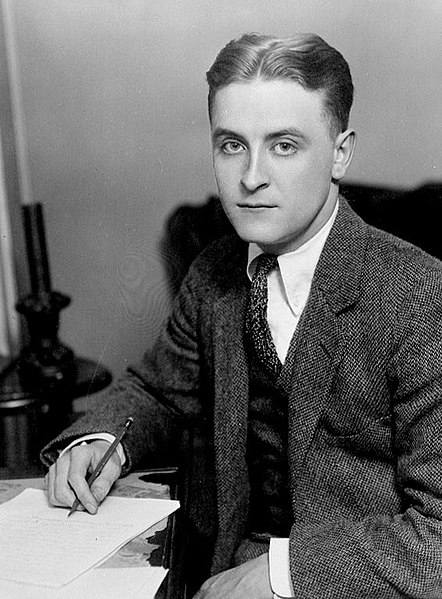F. Scott Fitzgerald, one of the quintessential authors of the Jazz Age, was born on this day in 1896. While best known for his novels (This Side of Paradise, The Beautiful and Damned, The Great Gatsby, Tender Is the Night, and The Last Tycoon, unfinished and published posthumously), his tumultuous marriage to fellow writer Zelda, and being one-time BFFs with Ernest Hemingway, he also coined or popularized several terms that have entered the lexicon. Today we dive into our five favorites.
daiquiri
“Here’s the old jitney waiter. If you ask me, I want a double Daiquiri.”
This Side of Paradise, 1920
While this cocktail of rum, lime or lemon juice, and sugar is believed to have been invented in 1896 by a U.S. mining engineer in Cuba — according to the Online Etymology Dictionary — Fitzgerald’s use in his first novel is the earliest recorded in English. The word daiquiri comes from Cuban village of the same name.
deb
“Both Tom and Amory had outgrown the passion for dancing with mid-Western or New Jersey debbies at the Club de Vingt.”
This Side of Paradise, 1920
Deb or debbie is a shortening of debutante, “a young woman making a formal debut into society.” The word debutante debuted in English in the early 1800s, and at first also referred to a female performer making her first appearance in public, says the Oxford English Dictionary (OED).
petting
“On the Triangle trip Amory had come into constant contact with the great current American phenomenon, the ‘petting party.’”
This Side of Paradise, 1920
Petting led to heavy petting 40 years later, according to the OED: “What is called ‘heavy petting’ in which frank exploration of each other’s bodies is permitted.”
wicked
“You two order; Phoebe and I are going to shake a wicked calf.”
This Side of Paradise, 1920
Ron Weasley can thank Fitzgerald for the ironically positive usage of wicked meaning wonderful, splendid, or remarkable. However, it was used in a jocular way to mean mischievous or sly since starting in the 17th century. From Shakespeare’s As You Like It: “That same wicked Bastard of Venus,..that blinde rascally boy.” As for how wicked became a New-England-centric intensifier (wicked smart, for example), check out this post from Merriam-Webster.
T-shirt
“So early in September Amory, provided with ‘six suits summer underwear, six suits winter underwear, one sweater or T shirt, one jersey, one overcoat, winter, etc.,’ set out for New England, land of schools.”
This Side of Paradise, 1920
While Fitzgerald’s is the first known mention of the word T-shirt (thought to be named for its shape), the simple yet iconic garment existed long before, says The New York Times.
Jazzed for more? Check out our posts on the language of the 1920s beyond the “bee’s knees” as well as 10 terms coined by Ernest Hemingway.
